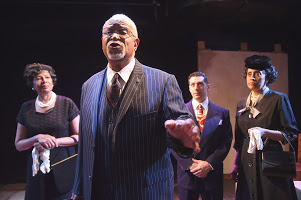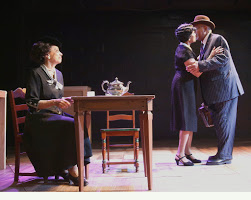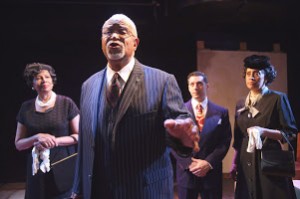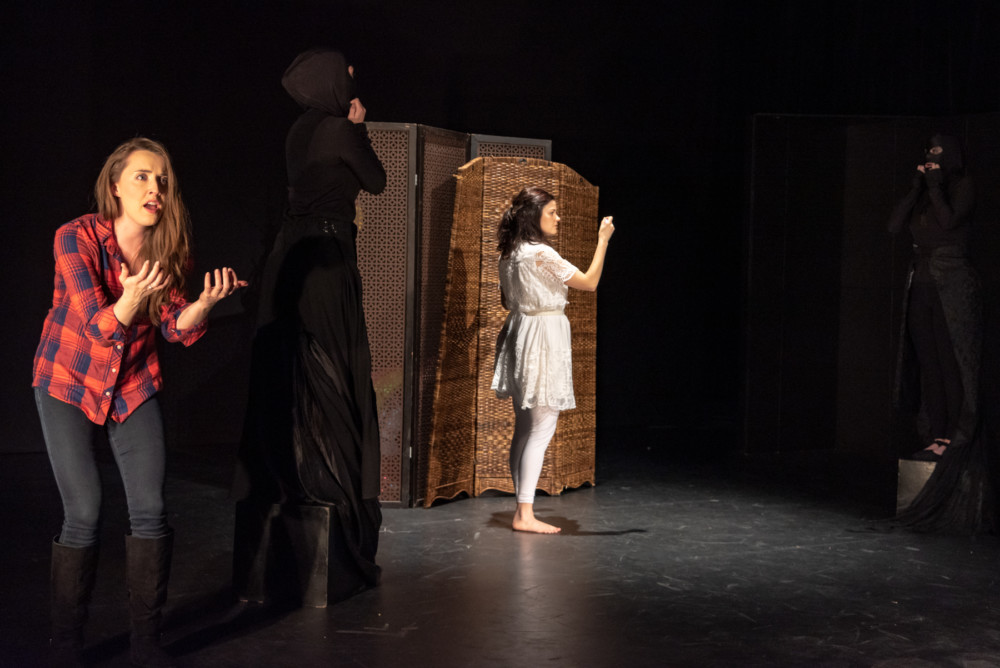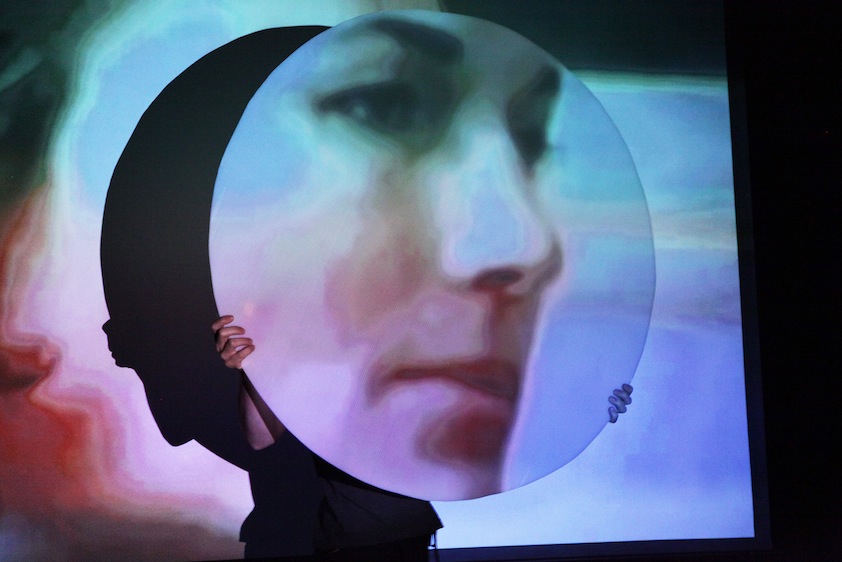Review By Elizabeth Ahlfors
In the infamous McCarthy era of the early ’50’s, proof wasn’t necessary to create headlines and destroy lives. Accusations swept across the country, ferreting out suspects in films, theater and literature with uncorroborated persecutions and trampling Constitutional safeguards.
One such shameful attack was waged on notable African-American scholar and activist, W.E.B. Du Bois (Art McFarland). At age 82, Du Bois was fingered by the FBI as an “agent of a foreign power.” He was indicted and put on trial for advocating peace and opposing nuclear weapons. “Blessed are the peace makers,” he said, continuing, “for they shall be called subversives!”
His story, The Most Dangerous Man in America (W.E.B. Du Bois) at the Castillo Theatre, was the last play written by poet/playwright Amiri Baraka (Dutchman). Du Bois, the first African American to earn a Harvard doctorate, was a co-founder of the National Association for the Advancement of Colored People (NAACP). In 1919, he organized the first Pan African Congress and was a leader of the Peace Information Center (PIC).
However, when he and other PIC leaders advocated the banning of all nuclear arms, the U.S. Justice Department demanded they register as foreign agents or go to jail. His trial in 1951 attracted worldwide attention. He was defended by Vito Marcantonio (Michael Basile), former U.S. Congressman from East Harlem and fellow activist who, like Du Bois, was vilified in the press and the Catholic Church, spurred by anti-progressive fear and hysteria.
The play seesaws between various locations. Harlem street scenes, alive with meetings in the barber shop, laughter and gossip at Sheba’s Lenox Avenue Beauty Salon, a celebration in Small’s Paradise, a dais in Madison Square Garden where Du Bois delivers his eloquent speech, and finally the courtroom of the House of Un-American Activities in Washington, D.C. Directed by Woodie King Jr, scenes in the courtroom are stirring as the wily Marcantonio presents his case, swiftly knocking down the prosecutor’s weak, often ridiculous, accusations.
Although Du Bois was acquitted, he lost the support of many moderate leaders, including the NAACP. The State Department denied him a passport and when he got his passport back after several years, he and his wife traveled around the world, settling in Ghana. In 1961, he joined the Communist Party.
The part of W.E.B. Du Bois is played by former WABC newsman, Art McFarland. Acting, McFarland says, was always his first love and he portrays the articulate activist with sensitivity, genial dignity with an edge of wariness. Equally layered is Petronia Paley’s portrayal of Shirley Graham, DuBois’ supportive second wife. While the play stresses her fierce loyalty, Shirley was actually an accomplished artist and activist, highly respected by her husband and others.
Basile is a small, quick and wiry Marcantonio, dressed by costume designer, Gail Cooper-Hecht in wide shouldered, double-breasted suits of the time. His snappy demeanor contrasts neatly with the conservative Du Bois and the Harlem community with women in hats and white gloves. While the story centers around the latter part of Du Bois’ life, a large cast of supportive players add color and interest.
While a variety of viewpoints are voiced with humor and passion, the production feels jumpy and disjoined as blackouts separate short scenes and move props on and offstage through siding screens. Bill Toles supplies projection designs of the day’s events and Mickey Davidson choreographed colorful dances for the jivey Harlem streets and the flamboyant African festivals. However, one reason for the play’s choppy unevenness is the original lengthy 250 page script. King had this cut down to concise 50 pages but while the show makes for an inspirational introduction, the brevity makes it far from an indepth study of a man whose call for peace is especially relevant today.
Woodie King Jr.’s New Federal Theatre, founded in 1970, specializes in producing plays by writers of color, of women and a youth outreach. It is dedicating its 46th season to the late poet/playwright Amiri Baraka whose 1964 work, Dutchman was produced earlier this year at the handsome new Castillo Theater (543 West 42nd Street). At the same theater, previews of the world premiere of Amiri Baraka’s final play, The Most Dangerous Man In America began on May 28, 2015, openng on June 11 and runs through June 28, 2015. It runs 90 minutes with one 10 minute intermission. http://www.castillo.org/dangerous-2015/


